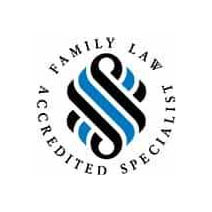How do you find a conveyancer?
Many clients tell us they were referred by their friends, real estate agent, broker or financial planner. Others have found us via online search. If you’re searching online or trying to choose between different recommendations from different people, it’s always a good idea to check online reviews.
When in the process should you engage your conveyancer?
When selling, we’d love to change the public perception of the process. Everyone instructs their real estate agent first. Naturally, they are the first people you think of when you want to sell your home.
We would like to educate people to choose a conveyancer or solicitor first, or at the time they are choosing a real estate agent.
That gives us – or any other solicitor or conveyancer – time to prepare the contract properly, including any details specific to your wishes or your property. It improves standards across the property industry.
When buying you can engage us as early as prior to making your offer; just after your offer has been accepted, or just after your cooling off period has commenced.
What makes a good conveyancer?
All conveyancers are licensed to practise. That’s a legal requirement.
The best conveyancers have a specific skill set around negotiating; take a holistic approach to the transaction, and possess the experience to avoid pitfalls and hiccups along the way.
They will know the practices, processes, and procedures to ensure each matter is settled efficiently and with minimum stress to you.
What does a Conveyancer do?
In many ways, your conveyancer is your project manager for the whole transaction.
Conveyancers are not tax accountants, financial advisors, brokers or lawyers. We can’t give you advice in any of those areas. We can though, identify when a client is going to need advice in these areas and if you do not have your own advisor, refer you to a trusted referral partner.
We also coordinate and manage communication between all the parties in a matter. The buyer. The seller. The real estate agents. The banks or lenders. Council. Other parties. It’s our job to make sure each step towards settlement occurs on time and all parties meet their obligations under the Contract.
A cooperative approach
People tend to think of legal matters as confrontational, but they don’t have to be. With a property transaction, once the buyer and seller have agreed on terms, they just want the transaction to go smoothly.
Negotiation and people skills
Although the price has usually been agreed, there are often other areas of the contract to negotiate. Your conveyancer should have the experience to do this.
Should you use the same conveyancer to sell and to buy?
If you’re buying and selling in the same state, it makes sense to use the same conveyancer.
It means your conveyancer is aware of any knock-on effects of changes – so for example if settlement date changes on one transaction, they know to look at that on the other transaction too.
It’s easier for you, too. It means you’re communicating with fewer people. Buying and selling a property is a busy and stressful time. Why make it more complicated unless you have to?
There are two reasons you might not be able to use the same conveyancer for both transactions.
- If you’re moving interstate. Conveyancers are licensed state by state, so one conveyancer is unlikely to hold licenses for both deals.
- When you come to buy, you may find your preferred conveyancer is already acting for the seller. It would be a conflict of interest for them to represent both buyer and seller, so it makes sense for you to choose someone else.
Summing Up
Choosing the right conveyancer can take so many headaches out of buying and selling property.
Don’t leave it to the last minute, instead:
- Plan ahead and choose someone early.
- Look for
- A friendly, cooperative approach
- Experience
- Positive reviews and personal recommendations
- Strong knowledge of processes and procedures;
Those are all things we focus on at KLH Conveyancing. If you’re buying or selling, please get in touch to find out more.




